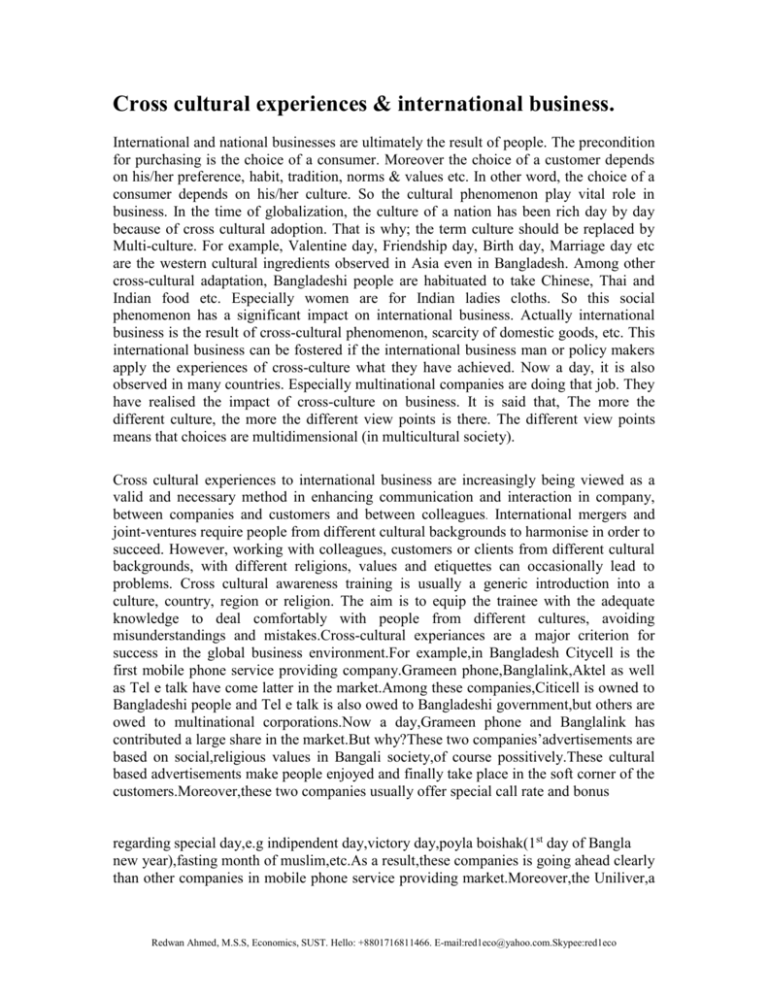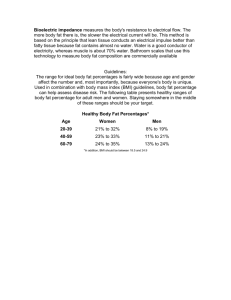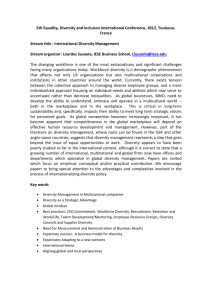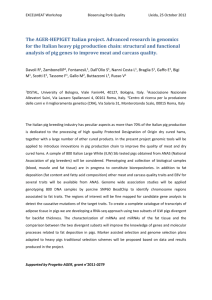Cross cultural experience
advertisement

Cross cultural experiences & international business. International and national businesses are ultimately the result of people. The precondition for purchasing is the choice of a consumer. Moreover the choice of a customer depends on his/her preference, habit, tradition, norms & values etc. In other word, the choice of a consumer depends on his/her culture. So the cultural phenomenon play vital role in business. In the time of globalization, the culture of a nation has been rich day by day because of cross cultural adoption. That is why; the term culture should be replaced by Multi-culture. For example, Valentine day, Friendship day, Birth day, Marriage day etc are the western cultural ingredients observed in Asia even in Bangladesh. Among other cross-cultural adaptation, Bangladeshi people are habituated to take Chinese, Thai and Indian food etc. Especially women are for Indian ladies cloths. So this social phenomenon has a significant impact on international business. Actually international business is the result of cross-cultural phenomenon, scarcity of domestic goods, etc. This international business can be fostered if the international business man or policy makers apply the experiences of cross-culture what they have achieved. Now a day, it is also observed in many countries. Especially multinational companies are doing that job. They have realised the impact of cross-culture on business. It is said that, The more the different culture, the more the different view points is there. The different view points means that choices are multidimensional (in multicultural society). Cross cultural experiences to international business are increasingly being viewed as a valid and necessary method in enhancing communication and interaction in company, between companies and customers and between colleagues. International mergers and joint-ventures require people from different cultural backgrounds to harmonise in order to succeed. However, working with colleagues, customers or clients from different cultural backgrounds, with different religions, values and etiquettes can occasionally lead to problems. Cross cultural awareness training is usually a generic introduction into a culture, country, region or religion. The aim is to equip the trainee with the adequate knowledge to deal comfortably with people from different cultures, avoiding misunderstandings and mistakes.Cross-cultural experiances are a major criterion for success in the global business environment.For example,in Bangladesh Citycell is the first mobile phone service providing company.Grameen phone,Banglalink,Aktel as well as Tel e talk have come latter in the market.Among these companies,Citicell is owned to Bangladeshi people and Tel e talk is also owed to Bangladeshi government,but others are owed to multinational corporations.Now a day,Grameen phone and Banglalink has contributed a large share in the market.But why?These two companies’advertisements are based on social,religious values in Bangali society,of course possitively.These cultural based advertisements make people enjoyed and finally take place in the soft corner of the customers.Moreover,these two companies usually offer special call rate and bonus regarding special day,e.g indipendent day,victory day,poyla boishak(1st day of Bangla new year),fasting month of muslim,etc.As a result,these companies is going ahead clearly than other companies in mobile phone service providing market.Moreover,the Uniliver,a Redwan Ahmed, M.S.S, Economics, SUST. Hello: +8801716811466. E-mail:red1eco@yahoo.com.Skypee:red1eco profound multinational corporation in Bangladesh(not only in Bangladesh but also in many countries of the world) produce many products.Among those,soap is one special product.In production of soap,fat is very important ingredient.This company can use pig fat or cow fat to produce it.If the company use pig fat in Bangladesh and cow fat in India to produce soap.what would happen? Their product would be unsold and finally their business would be hampered.Because pig fat is prohibited in Muslim religion,whereas cow fat in Hindu religion.So considering the religious values of these two countries, the company should use cow fat in Banladesh and pig fat in India to produce soap or Vegitable oil in both countries.If they do that,their product will be sold in the market and business is to be go up.In this case,cultural(religious norms) experience emerges as a major factor in success of the international business. Cross cultural skills means learning to manage cultural difference on three levels: self, interpersonal, and organizational.International business managers rate the ability to work with people of other cultures as the most important quality of success, particularly in overseas assignments.This means being able to manage cultural differences on three distinct levels.First, individuals must be able to cross-culturally manage themselves: to move personally beyond culture shock and adapt to the alien location to where they have been sent. Second, they must be able to manage cross-cultural differences at the interpersonal level. This includes relating effectively to fellow employees, suppliers, customers, and government officials.As an expatriate resident, this also includes dealing competently with the host nationals with which they come into contact in daily life, such as taxi drives, store clerks, service people and neighbors. Third,they must be able to cross-culturally manage at the organizational or institutional level. This means possessing enough understanding of both their host culture and their home culture to be able to make correct managerial decisions regarding their organization's work force, its commercial markets, the community in which it operates, and the nation which is its host. Globalization, the expansion of intercontinental trade, technological advances and the increase in the number of companies dealing on the international stage have brought about a dramatic change in the frequency, context and means by which people from different cultural backgrounds interact. In order to have a well functioning business unit within a company, communication is critical. Cross cultural consultants will provide tools and methods to promote staff integration, reduce cross cultural conflicts and build team spirit. This is essentially done through highlighting differences and building on strengths to ensure they are used positively. Staff that travel overseas need to understand the cultural basics of the host country or region. Knowledge of the country's history, culture, laws, traditions, business practices and social etiquettes all help to minimise the impact of cultural shock and hence smooth their transition in overseas. Equipped with their knowledge of the two or more cultures that can be meeting around the negotiation table, a cross cultural consultant advises on areas such Redwan Ahmed, M.S.S, Economics, SUST. Hello: +8801716811466. E-mail:red1eco@yahoo.com.Skypee:red1eco as negotiation strategies, styles, planning, closure and etiquette in order to increase the chance of a successful outcome, free from misunderstandings, suspicions and general cross cultural communication breakdown. Brand image, public relations and advertising are all areas companies must be careful of when moving out of the national context. Tastes and values change dramatically from continent to continent. It is crucial to understand whether the brand name, image or advertising campaign is culturally applicable in the target country. Cross cultural consultants examine words, images, pictures, colours and symbols to ensure they fit well with the target culture. Language training is an area where little investment is made by companies, but where the business advantages are great. Linguistic knowledge goes a long way in bridging cultural gaps and smoothing lines of communication. The cross-cultural communication should be used for deeper understanding of international clients. Cross cultural consultancies provide language training to business staff, moulding their learning to the business environment in which they work. The international assignees have collectively become vital for the success of multinational firms. These international assignees fill critical staffing needs in subsidiaries, manage key projects, transfer knowledge and corporate culture across geography, work on multinational teams, and perform many other critical tasks for their firms. Global competition is unavoidable in international business. Now a day tariff, non-tariff barrier as well as quota system have been abolished or at minimum level due to WTO. That is why, global competition has risen. In order to have a well functioning business in world arena, multinational companies should take business strategies in a country in such a way so that they would be successful at least as home companies in the country. To compete with home companies, multinational companies must have idea about the culture of the country. The policies taken should be feasible for the country under consideration. To avoid unexpected misunderstanding among companies and consumers etc, the key members of a corporation should take techniques so that consumer’s preferences would play a vital role, which finally fosters international business. Redwan Ahmed, M.S.S, Economics, SUST. Hello: +8801716811466. E-mail:red1eco@yahoo.com.Skypee:red1eco










